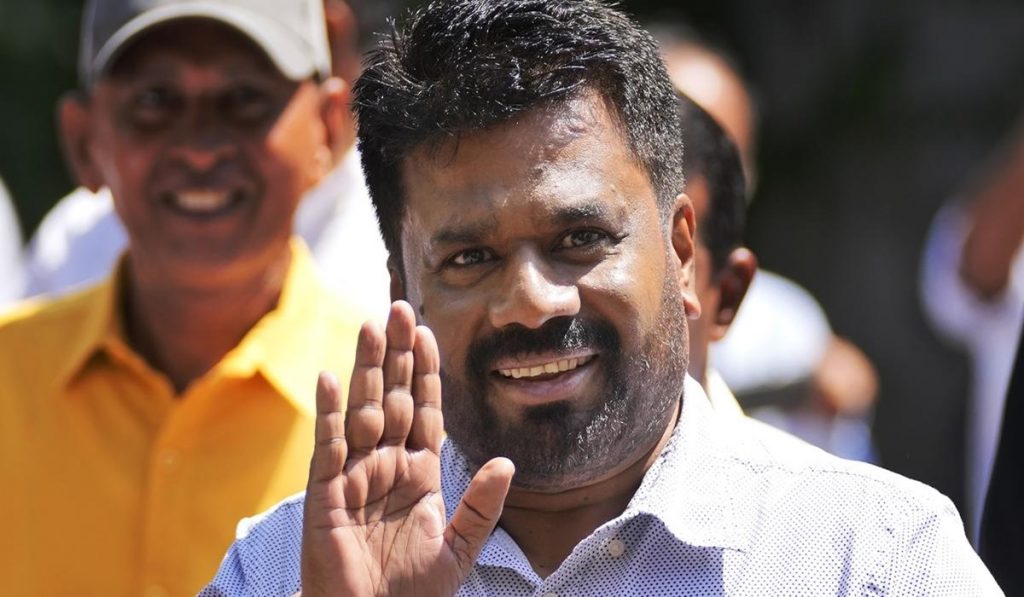Colombo (Sri Lanka): Anura Kumara Dissanayaka, the 55-year-old leader of the leftist Janatha Vimukthi Peremuna party, has been declared the winner of the election, according to the Election Commission of Sri Lanka.
He will be the 9th Executive President of Sri Lanka, beating Sajith Premadasa after the country’s first ever Presidential Election run-off, reported Daily Mirror.
The election commission made the announcement after a second vote count, the first in the country’s history. Incumbent President Ranil Wickremesinghe came third and eliminated after the first round, reported Al Jazeera.
Saturday’s election marked the third time that Ranil Wickremesinghe – unsuccessfully – ran for president. His previous two bids for the top job were in 1999 and 2005.
The president-elect in a post on X called for the unity of Sinhalese, Tamils, Muslims, and all Sri Lankans for a new beginning.
“The dream we have nurtured for centuries is finally coming true. This achievement is not the result of any single person’s work, but the collective effort of hundreds of thousands of you. Your commitment has brought us this far, and for that, I am deeply grateful. This victory belongs to all of us. Our journey here has been paved by the sacrifices of so many who gave their sweat, tears, and even their lives for this cause. Their sacrifices are not forgotten. We hold the scepter of their hopes and struggles, knowing the responsibility it carries. The millions of eyes filled with hope and expectation push us forward, and together, we stand ready to rewrite Sri Lankan history. This dream can only be realized with a fresh start. The unity of Sinhalese, Tamils, Muslims, and all Sri Lankans is the bedrock of this new beginning. The New Renaissance we seek will rise from this shared strength and vision. Let us join hands and shape this future together!” said Dissanayaka.
The president-elect is expected to be sworn in on Monday, according to initial information.Rauff Hakeem, a parliamentarian with the Sri Lanka Muslim Congress, has congratulated Dissanayake for his apparent election victory, calling it a “feat”.
“The people of Sri Lanka have expressed their sincere determination in the 9th Presidential election of the country,” he wrote on X.
This was the first presidential election of Sri Lanka after the 2022 economic crisis caused from excessive borrowing on projects that did not generate revenue.
Economic mismanagement by successive governments also weakened Sri Lanka’s public finances. The situation was exacerbated by deep tax cuts enacted by the Rajapaksa government soon after it took office in 2019.
Months later, the COVID-19 pandemic struck, wiping out much of Sri Lanka’s revenue base, mainly from tourism. Remittances from nationals working abroad dropped, forcing the government to draw from foreign exchange reserves. Fuel shortages led to long queues at filling stations as well as frequent blackouts, while hospitals ran short of medicine.
The economic collapse led to persistent antigovernment protests, with demonstrators taking over key buildings and forcing then-President Gotabaya Rajapaksa to flee the country and resign. Ranil Wickremesinghe was elected by a parliamentary vote in July 2022 to cover the remainder of Rajapaksa’s five-year term.
